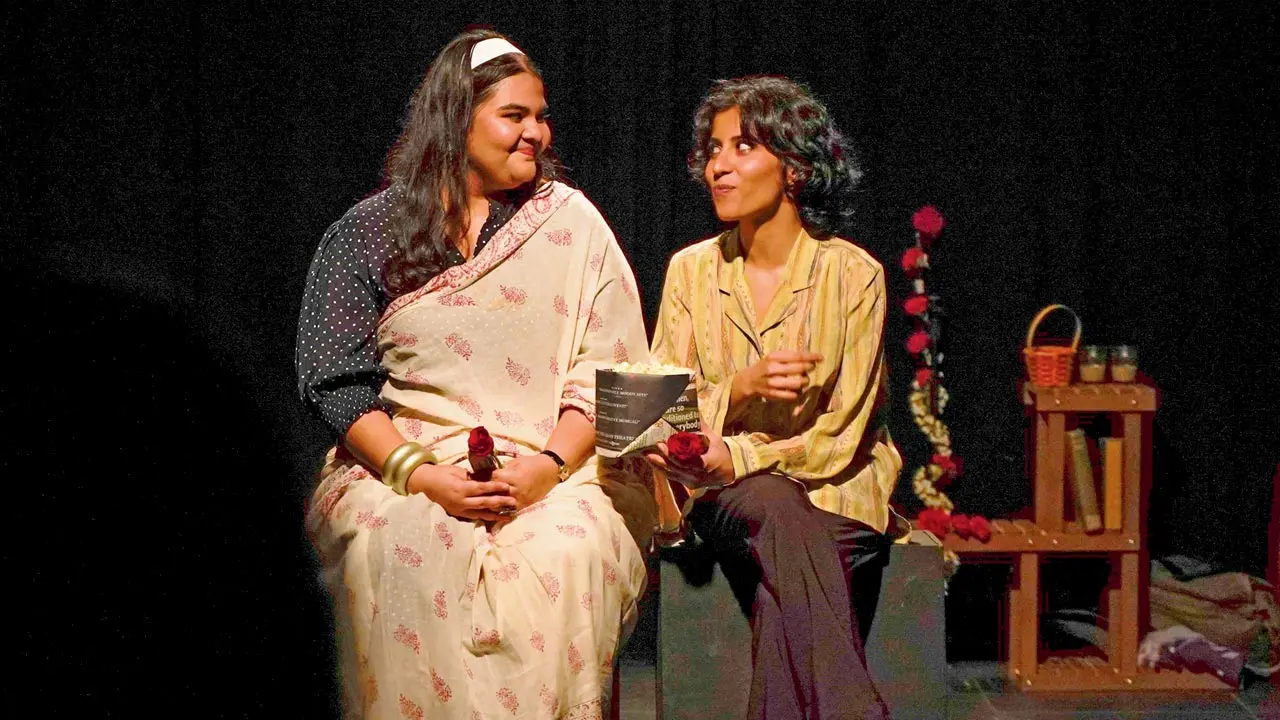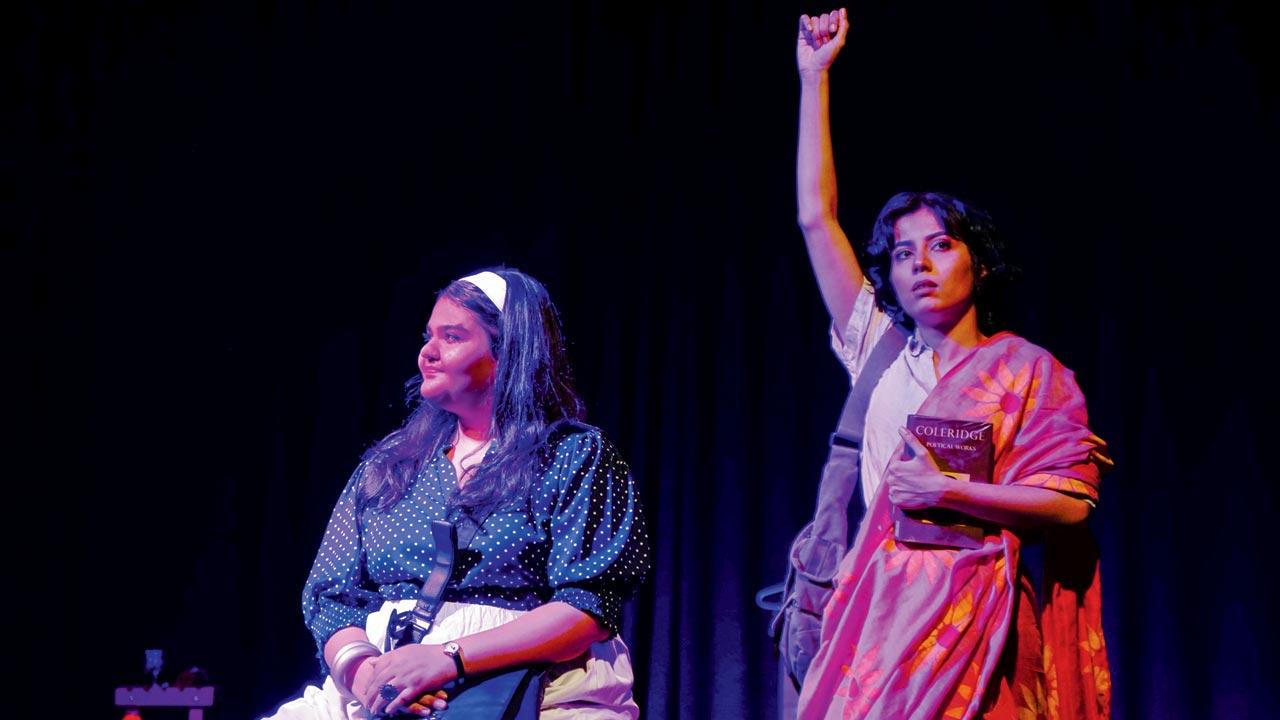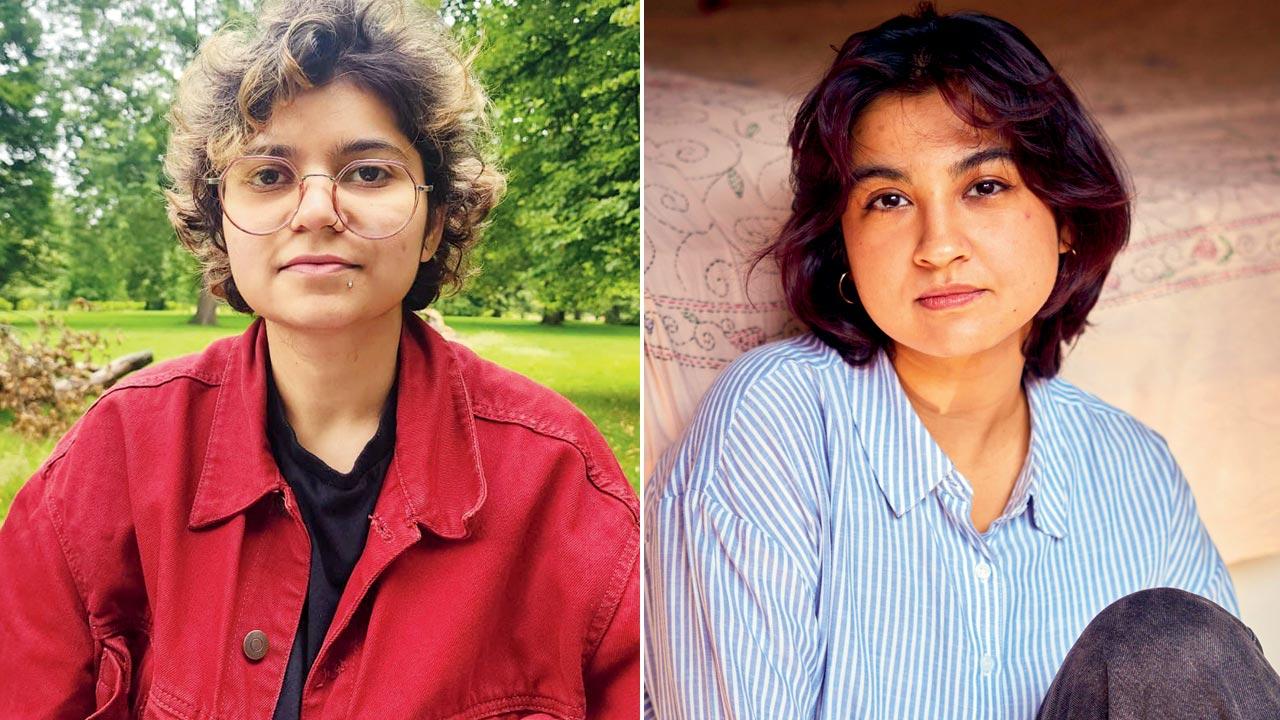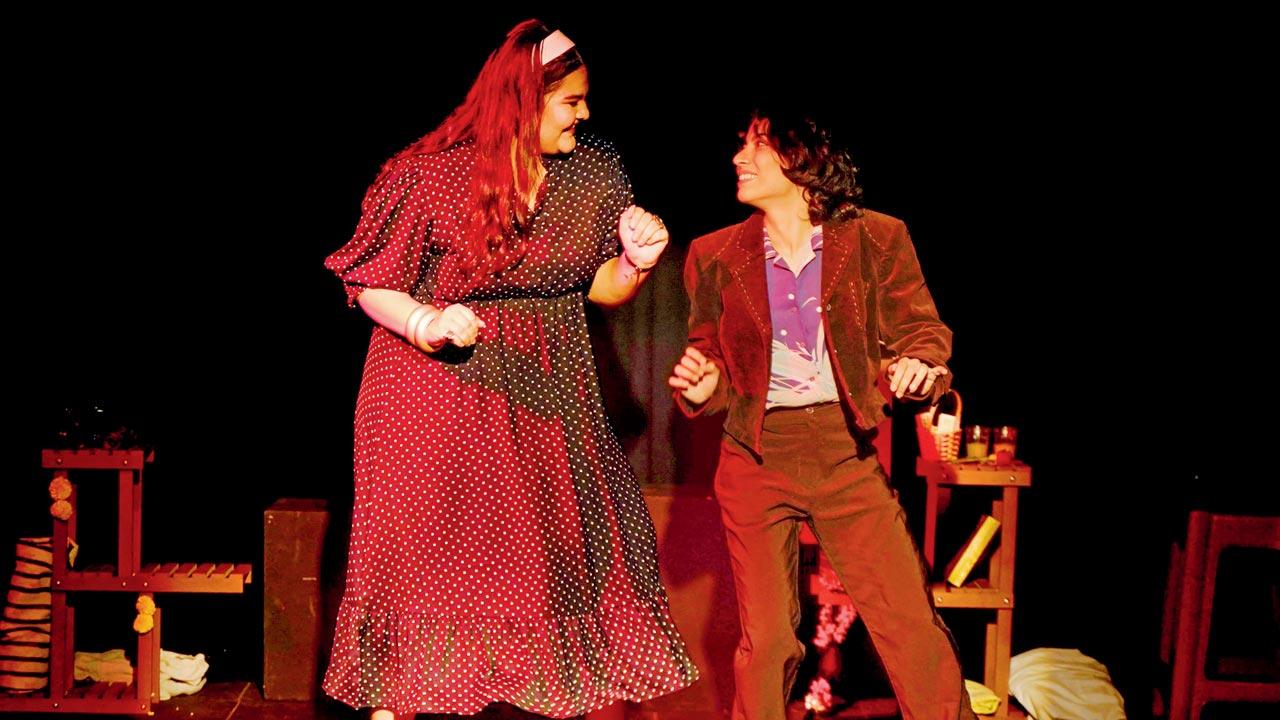Steeped in the sweet nostalgia of 1970s Bombay, this coming-of-age queer play deserves a spot in your pride month watchlist in the city

Harshini Misra (left) and Sasha Dhawan
What defined 1970s Bombay (as it was known then)? Political tensions, cultural growth, inflation, and a film industry headed by adrenaline-fuelled ‘angry young men’? Yes, we have ticked a few important boxes here, but can you visualise a love story blossoming between two girls during such a charged era? Luckily for us, the thought wasn’t too far-fetched for the writer and directors of Jhumkewali, a play by city-based theatre group Haus of Bhaus. Originally penned as a short story by London-based writer Ami Bhansali and later adapted into a play directed by Nidhi Krishna and Mekhala Singhal, the 45-minutes long play will take the stage at a city venue today.
 The play revolves around two women in 1970s Bombay
The play revolves around two women in 1970s Bombay
Playing out in the charming corridors of Sophia College for Women, quiet corners of Parsi cafés, local trains, andpacked paan tapris — the city takes on a very important role in the simmering love between the two protagonists, Bindu and Rekha. “There is already a sense of nostalgia built into the idea of Bombay. It is in bits and pieces all around us, from the checkered tablecloth of cafes to a ride in the ladies’ compartment of the local train. We have tried to emulate all these elements in the play,” Singhal shares.
 Ami Bhansali; Mekhala Singhal
Ami Bhansali; Mekhala Singhal
But it is not only about the silent romance of these spots, it is also about straddling spatial grids as Bhansali adds, “When one thinks of going to college or coming-of-age in the city, areas like a paan tapri can become a special place for many of us. Bombay is not a city with a lot of third spaces for young people, especially young women. So, for me, a big part of the story was about finding small moments of love and intimacy in public spaces, or in spaces where you wouldn’t
usually expect it.”
 Misra and Dhawan in a moment from the play. Pics Courtesy/Keyuri Bhogale
Misra and Dhawan in a moment from the play. Pics Courtesy/Keyuri Bhogale
As a missing jhumka sparks the connection between the characters, we wonder how the dynamics of a sapphic relationship would have played out in an era of where queer identities were viewed through harsh lenses of discrimination. “In our research, we noticed that a lot of popular or commonly told stories about queer narratives are mostly focused on gay men. These stories of queerness were often confined to private homes, mostly the elite class who had the privilege of being ‘out’, or of hosting other queer people without any fear. Though the situation has changed, much of it is still true. In the play we have tried to imagine the experience of being queer for someone who is from Mumbai, comes from a middle-class setting and has an otherwise ‘normal’ life,” the writer explains.
In India, at least, the idea of love often boils down from a personal choice to that of a political act where all your identities intersect to play a big role in who you can choose as your partner. “There are a lot of contemporary discussions around the LGBTQiA+ community happening now, but even 10 years ago, the scene was very different. It was almost impossible to be publicly queer. In the few stories and experiences that one might have heard, the dominant sentiment is how difficult the lives of queer individuals have been. While that is true, it also massively overlooks the joy of being queer itself,” Singhal points out.
As the creative brains behind the play plan on developing the story further, the essence of the play, rooted in the beauty and the conflicts of the era, remains the same. “We would love to believe that there were people whose experiences were like those of our characters, that our play isn’t too far off in imagining a world situated in a by-gone era where a girl loves another so much that she puts herself out there and ‘invents’ something that people would do for years to come,” Bhansali sums up.
ON June 6; 5.30 pm
AT Auditorium, Godrej One, Pirojshanagar, Vikhroli.
LOG ON TO @hausofbhaus on Instagram (to register)
FREE
 Subscribe today by clicking the link and stay updated with the latest news!" Click here!
Subscribe today by clicking the link and stay updated with the latest news!" Click here!











